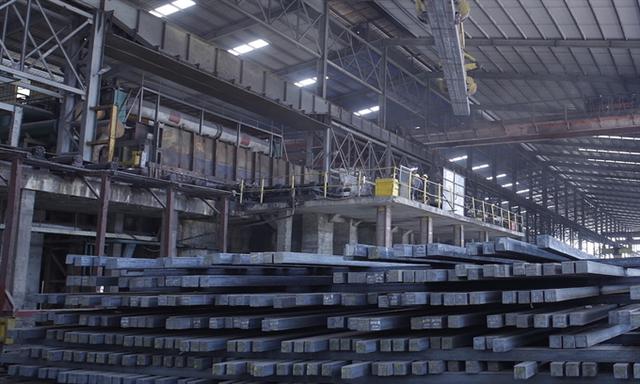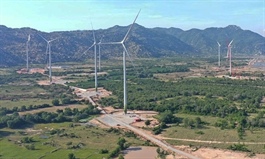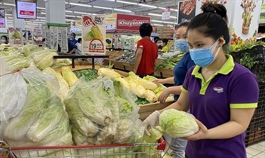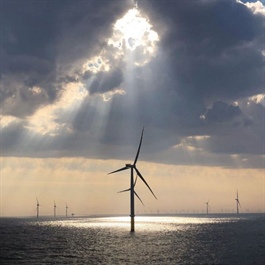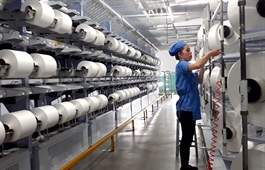Vietnam supply chains not affected by China power shortages: official
Vietnam supply chains not affected by China power shortages: official
The current electricity shortage in China will not immediately affect production chains in Vietnam, but might increase the prices of some imports, an official has said.
Steel billet production at a plant in the northern province of Hai Duong. Photo by VnExpress/Anh Minh |
Nguyen Ngoc Thanh, deputy head of the Ministry of Industry and Trade’s Industry Agency, said Thursday at a regular press briefing that with Covid-19 breaking Chinese supply chains from time to time since its onset in 2020, Vietnamese manufacturers have learned to cope with shortages, mainly by importing from other markets.
Demand for feedstock and other inputs has fallen sharply along with industrial production since many cities and provinces imposed stringent social distancing restrictions.
"We have yet to receive any reports from enterprises in Vietnam about shortages caused by the power outages in China," Thanh said.
Construction steel makers in Vietnam are able to meet demand, and so the country is no longer heavily dependent on foreign supply of raw materials for production.
Producers of garments, textiles and footwear do rely on materials and accessories imported from China, but they have not reported shortages yet.
China was Vietnam’s biggest exporter in the year-to-date with shipments rising by nearly 41 percent to US$81.2 billion. Key imports included machinery, equipment, tools, parts, and raw materials for the production of garments, textiles and footwear.
Foreign companies would seek ways of investing in Southeast Asian countries, including Vietnam, instead of power-deficient China, CNBC quoted an expert as saying.
Johan Annell, partner at Asia Perspective, a consulting firm that works primarily with Northern European companies operating in East and Southeast Asia, told CNBC: "Some companies were on the fence about investing in China. They choose to not go ahead now."
The investments each run into the tens of millions of dollars, he said. While China is still a "very strong destination" for manufacturing, he said the businesses are now looking to invest in Southeast Asia instead, particularly Vietnam.
China is experiencing a severe power shortage, mainly due to stronger pressure from its emission reduction goals and higher prices of coal used in thermal plants. Many factories in China, including aluminum refineries, garment producers and soya bean processors, have had to reduce or even stop operations.
Chinese authorities are calling for increasing coal production and transport power stations. They are also considering increasing power prices to reduce demand, Bloomberg reported.
China, the world’s biggest coal consumer, imported 197.69 million tons in the first eight months of this year, down 10 percent year-on-year.


